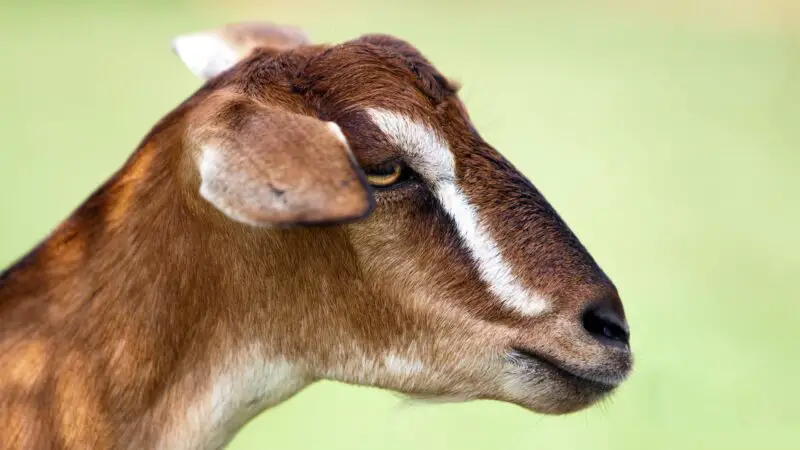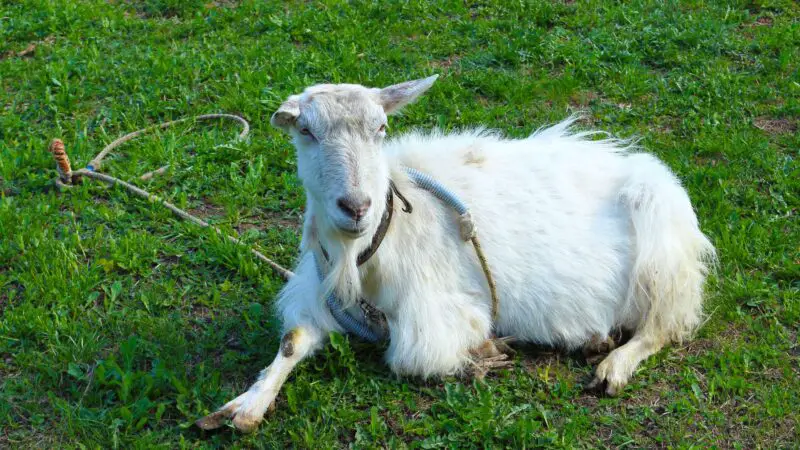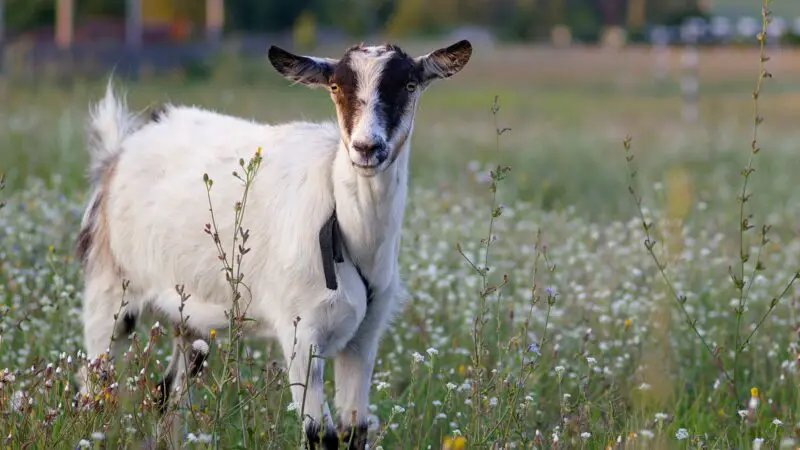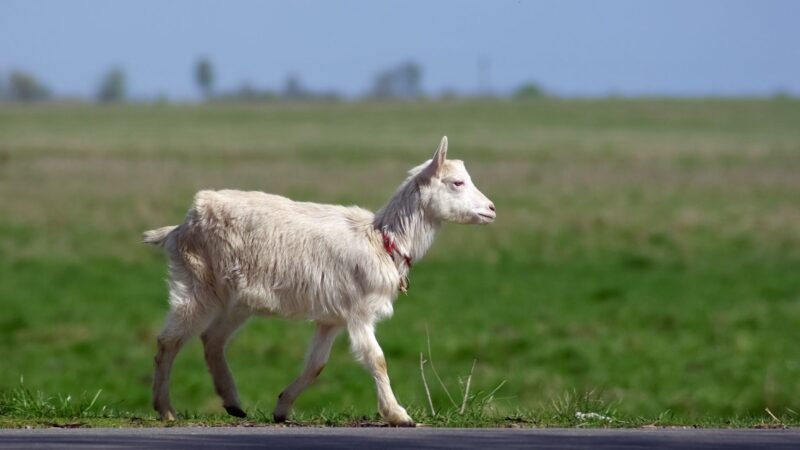As a goat enthusiast and someone who’s spent countless hours on a small homestead, I’ve dealt with the fascinating world of goat genetics and the various aspects that make them unique. In this post, we’ll explore polled goats and the mysteries of their hornless nature. You might even learn a thing or two about the continuous growth of goat horns!

What does it mean if a goat is polled?
A polled goat is a goat that is born naturally without horns due to a genetic trait. This occurs when the animal inherits the polled gene from one or both of its parents. Polled goats are not a separate breed, but rather a variation within many breeds.
Now that you’ve got the basic idea, we’ll dive deeper into understanding how to identify polled goats, the causes behind this trait, and the differences between horned and polled goats. Additionally, we’ll explore the topic of disbudding and the continuous growth of goat horns.
How Do You Tell if a Goat Is Polled?
Determining if a goat is polled can be tricky, especially when they’re young. A newborn polled goat may have a smooth and rounded area where the horns would typically emerge, while a horned goat will have small bumps or “buds” in the same area. As the goat grows, the absence of horns becomes more apparent, but always consult with an experienced goat keeper or veterinarian to confirm.
What Causes a Goat to Be Polled?

A polled goat inherits the trait from its parents, with the polled gene being dominant. When a goat inherits a polled gene from at least one parent, it will be born without horns. However, as with many genetic traits, the inheritance of polled genes can be more complex, with varying degrees of expression in individual goats.
Is Being Polled Dominant or Recessive?
The polled trait in goats is dominant, meaning that if one parent has the polled gene, there’s a higher likelihood of the offspring being polled. However, it’s not always guaranteed, as genetic factors and breed variations can influence the expression of this trait.
What Is the Difference Between Polled and Horned?

The primary difference between polled and horned goats lies in the presence or absence of horns. Polled goats are born without horns due to their genetic makeup. Horned goats have a pair of horns that grow continuously throughout their lives. The absence of horns in polled goats may offer certain advantages, such as the reduced risk of injury to other goats or humans.
Should You Disbud Goats? Will It Hurt Goats?
Disbudding is the process of removing horn buds from young goats to prevent horn growth. Many goat keepers choose to disbud their goats for safety reasons, both for the goats and their handlers. The procedure, typically performed by a veterinarian or experienced goat keeper, can be painful for the goat, but the use of anesthesia and pain medication can minimize discomfort. It’s essential to weigh the pros and cons of disbudding and decide if it’s the right choice for your goat.
Do Polled Goats Have Nubs?
Polled goats may have small, rounded nubs where the horns would normally grow, but these nubs do not develop into full horns. These nubs can vary in size and shape depending on the individual goat, and in some cases, they may be barely noticeable.
Do Goat Horns Keep Growing?
Yes, goat horns continue to grow throughout the animal’s life. The growth rate varies depending on factors such as age, nutrition, and breed, but goat horns generally grow in a curved or spiral pattern, increasing in length and thickness over time.
Related Questions

Are Boer Goats Naturally Polled?
Boer goats, like other breeds, can be naturally polled. The presence of polled Boer goats depends on their genetic makeup and the inheritance of the polled gene. While not all Boer goats are polled, it’s not uncommon to find individuals within the breed that are hornless.
Can Boer Goats Be Polled?
Yes, Boer goats can be polled. As with any other goat breed, the polled trait in Boer goats results from the inheritance of the dominant polled gene from one or both parents.
Can Female Goats Have Horns?
Both male and female goats can have horns. The presence of horns is not determined by the goat’s sex, but rather by their genetic makeup. Female goats with horns are just as common as their horned male counterparts.
Are Maine Anjou Horned or Polled?
Maine Anjou cattle, not goats, can be either horned or polled, depending on their genetic makeup. Historically, Maine Anjou cattle were primarily horned, but selective breeding has led to an increase in polled individuals within the breed.
Final Thoughts
Understanding the world of polled goats is an exciting journey into goat genetics and the unique qualities of these fascinating animals. Whether you’re a seasoned goat keeper or a newcomer, knowing the ins and outs of polled goats and horn growth can help you make informed decisions about your goat’s care and management. Remember, polled or horned, each goat is a unique individual with its own personality and charm.
Related: How to Trim Goat Hooves | Easy-to-Follow Steps!
